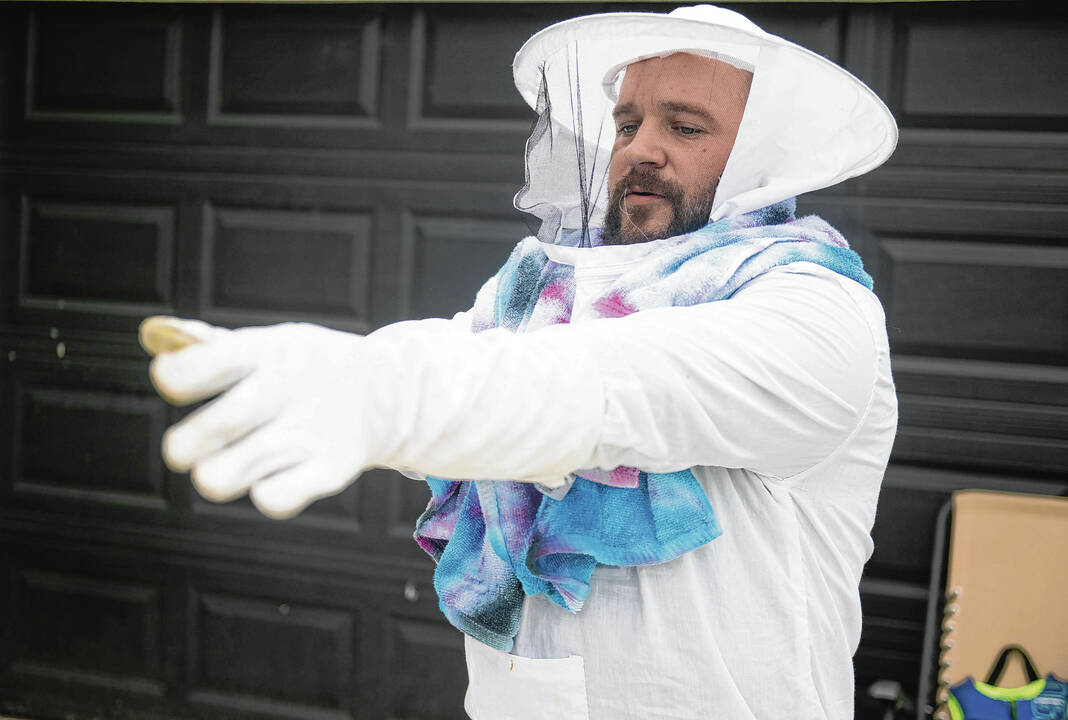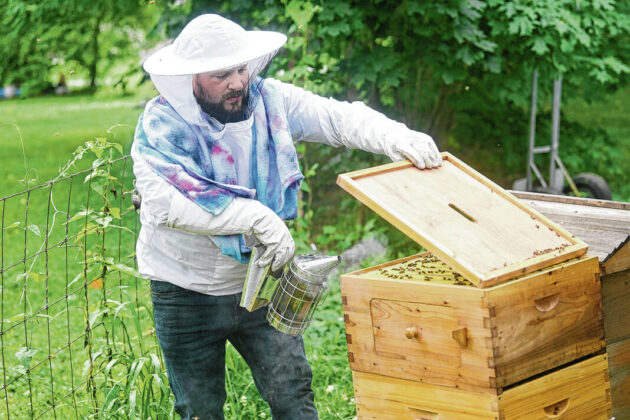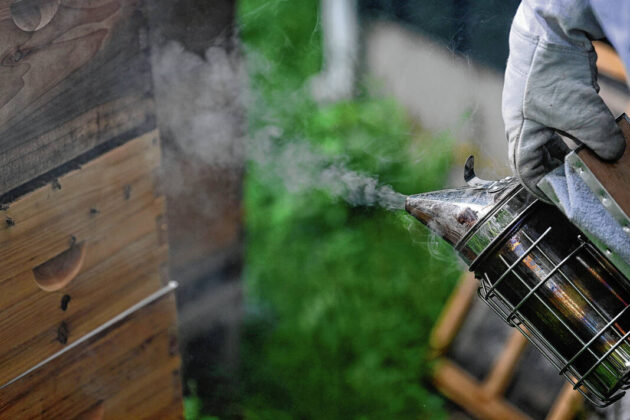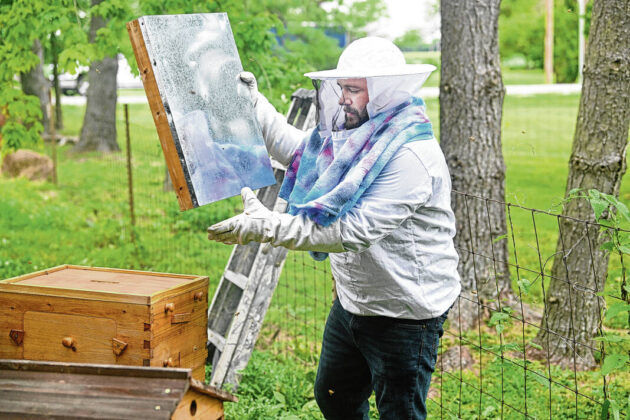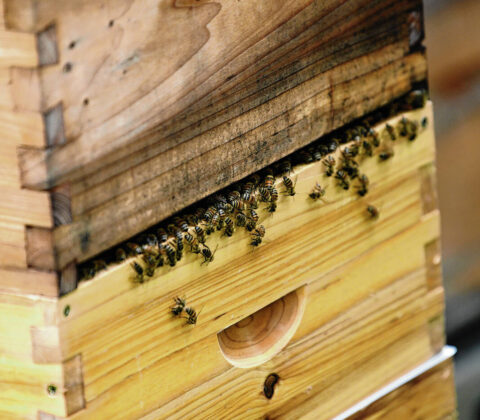By Elissa Maudlin
FORTVILLE — Garen Waters said her mom was “mother nature’s assistant” and, at 96 years old on her death bed at Greenfield Hospital, her mom’s last message was brief: “take care of nature.”
For Waters, saving animals has been “just a quiet mission,” and she has saved raccoons, birds, rabbits and other animals. Trees and greenery take up space in her backyard.
On May 9, however, it wasn’t just greenery taking up space — her whole backyard was covered with flying bees.
Waters said it was “like walking into a horror movie.”
Next door was Alex Barrow, a practicing beekeeper who decided he wanted to be a beekeeper four years ago. He had never seen a swarm before.
“It’s so fascinating,” he said. “I mean, you can sit out there for an hour and watch them. They come in with red pollen and pink pollen … and all these different colors. And just the whole way the system works [is fascinating] … ”
Barrow said it was “game time” for him.
He appeared on the scene looking like “just what you would see on a special on beekeeping,” Waters said, referring to his beekeeping outfit and smoker. “… he was a newbie at this.”
Barrow grabbed a nuc box — a temporary box to put the bees in — put frames in it, scooped in some of the bees and then left it for three hours.
The United States Department of Agriculture pollinator fact sheet from 2020 said swarming occurs when a honey bee colony grows too large and splits into two, causing a second queen and half the colony on the search for a new home. Barrow said wherever she goes, they will go. As he scooped the bees in, he was hoping the new queen bee would enter the hive because then the other bees would follow.
“… They don’t need a lot of help,” Barrow said, ” … Like everyone thinks they need all this coaching. They’ve been alive for millions of years. They just need a place to stay and not be [bothered].”
He now has the hive in his backyard, adding to his bee collection of currently 30-50,000 bees and two colonies.
However, that’s not the end of the story — a week to 10 days later, Waters walked into another bee swarm in her backyard.
“This can’t be happening again,” she had thought at the time, and wanted to know what was attracting them to her backyard.
Barrow didn’t have another hive to put them in, so another man came to help Waters and Connaday — Ross Harding.
He started beekeeping 11 years ago and manages bees for clients, as well as sells comb honey to restaurants. He wanted to “be his own boss” and had a vision of making his own mead, which is honey wine.
“I love [beekeeping],” he said. “It’s interesting. There’s always a challenge that you want to learn and try to master …”
Waters said Harding came to do the job “au natural,” in a T-shirt with no protection. She said he handled the bees “like you would probably handle a small child.”
“Both [were] absolutely fantastic at what they did,” she said. ” … Just two different styles as diverse as you could probably find.”
Harding said he didn’t wear a suit because bees are not generally aggressive when they are swarming. Their bodies are filled with honey and they aren’t protecting anything.
The second swarm was 8 to 10 feet up in a tree on a branch and Harding put a nuc box underneath and gave the branch a good shake, he said, getting 90 percent of the bees to go in the box right away. Waters said he thanked her at the end for not destroying the bees and the thank you “was from his heart.”
Harding views saving the bees as “imperative,” since a good amount of our food is pollinated by bees. The United States Department of Agriculture fact sheet said more than 100 U.S. grown crops rely on bees and other pollinators, and “the added revenue to crop production” is $18 billion in value. Among the 4,000 types of bees in the U.S., honey bees are the primary pollinator, commercially.
“I just don’t think they get enough gratitude … ” Barrow said. “It’s not about the honey, really. It’s more about [the fact that] you wouldn’t have the honey or the plants to make the honey if you didn’t have the bees that do the work for you.”
Harding encourages people to contact local beekeepers instead of spraying bees, and Barrow encourages people to be “more conscious” about them. He said if they’re on your Coke can, just leave them be.
Now, Waters backyard isn’t filled with swarming bees. She sits on her porch, as birds visit her yard, including a cardinal and two blue jays.
“We just try to give everything that needs a space a space,” Waters said. “ … Conserve, help them out. They need all the help they can get.”
Waters said conservation “is in [her] whole being,” because of her mom’s last words.
“I think it just runs in my core since then,” she said. “I think it’s just part of my process, part of who I am.”

